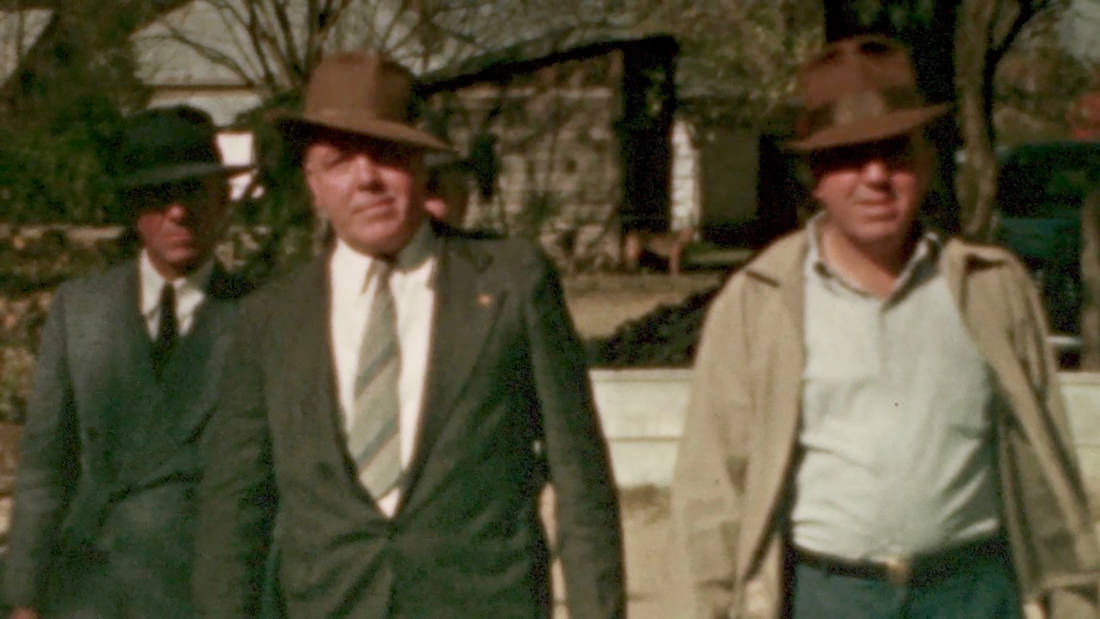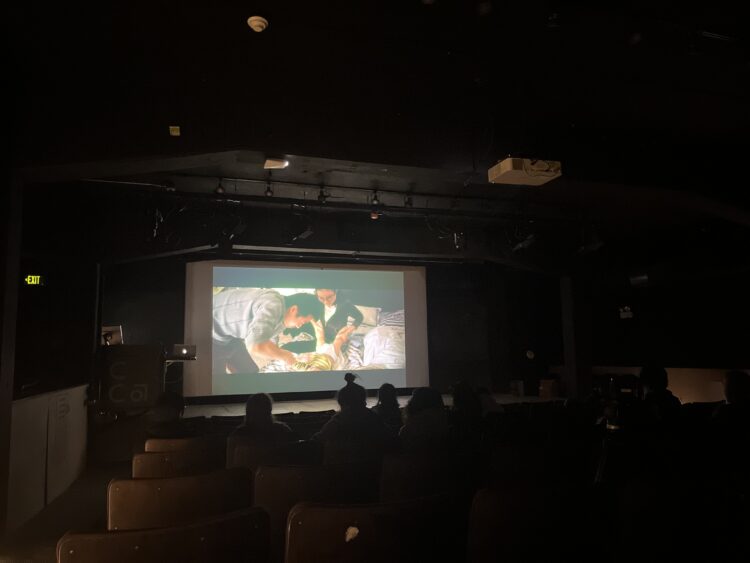Travis Wilkerson Explores Contemporary Politics By Investigating a 1940s Murder

Filmmaker Travis Wilkerson has made a career out of creating works dedicated to anti-oppression causes, so when he learned that his own great-grandfather played a role in murdering a black man in rural Alabama, he was devastated. As he set out to unravel the story of the murder, he only encountered further obstacles. Using archival footage, documentary and a live performance, Wilkerson explores the way the past continues to haunt us today. His Creative Capital project around the tale, entitled Did You Wonder Who Fired the Gun?, premieres at Jan 20 & 22 at Sundance Film Festival as part of their New Frontier series.
We spoke to Wilkerson about the project.
Alex Teplitzky: Can you tell us more about the film and how it unfolds? How does it relate to the performance you’re preparing for?
Travis Wilkerson: The story basically circles around an incident involving my family in the 1940s. My great grandfather, S.E. Branch, was charged with first degree murder of a black man. The charges disappeared somehow. It’s really just a family legend at this point. I wanted to try and sort out what actually happened all those years ago. What documents still existed, perhaps any living witnesses or relatives (of the victim or the perpetrator). It just seemed like a story of this time in this world and I wanted to find a way to make it live here and now.
Of course, it’s all so incredibly fraught. My family is the family of the murderer. My relative was a racist. A thug really. I’m a white male college professor. All these things are really troubling and complex to navigate. So, how to do it?
It just seemed to me, more and more, that the only way to do it (at least at first) was to share this in a really intimate way. To open myself up to vulnerability around this issue. I wanted to be in the room with people. I was convinced it would have a far more electric charge than a normal movie, withdrawn behind the screen and safely hiding. I’ll probably convert it into a proper film, but only after I’ve experienced all that. The physical experience of first sharing it in the room.
As a society, we need to confront uncomfortable things in our past and present if we have any hope of moving forward in a more progressive way. Of course, a refusal to confront those things is also precisely how we’ve found ourselves in the mess we are all currently living in.
The performance itself is a true live film. I’ve explored this form before, but I’m taking it much, much further. Technology allows me to mix the images as I go, to control duration, speed, color, all live. I can trigger music, sound, distortion, ambience. I trigger intertitles too. I do this all myself from my laptop.
Meanwhile, the spoken text itself will be done while all this is happening.
This sounds very maximalist but actually it’s quite minimal. Spooky. Haunted. Hushed.
Alex: You’ve said that you found out your grandfather took part in the murder of Bill Spann the day after you were part of a protest against the George Zimmerman trial—the man who shot 17-year old Trayvon Martin and was acquitted. It must be heartbreaking to be connected to violence that you yourself are committed to fighting against. Can you describe what it felt like to learn all this and how you come to terms with it?
Travis: Being implicated in the kind of violence I try and struggle against really isn’t all that new of an experience. My core political value is an opposition to war and racism. It guides everything else for me. And yet I hail from the most militaristic country in the world—we’re bombing seven different countries right now, for example. We build and sell the most weapons. We have the most foreign military bases. I believe I read this week that the U.S. has special forces in something like 70% of all countries in the world. So, we’re all implicated in that violence in a really deep way.
How to come to grips with being implicated by the things that most animate your anger is a really important challenge. Racist violence (a lot of war is, of course, racist violence) is very much the same. It shapes the whole of our history, our culture, our consciousness. As a society, we need to confront uncomfortable things in our past and present if we have any hope of moving forward in a more progressive way. Of course, a refusal to confront those things is also precisely how we’ve found ourselves in the mess we are all currently living in. I suppose I read this creative work as an expression of that too.
Alex: You also mention that in researching the murder of Bill Spann and your grandfather’s involvement in the murder, you felt like your grandfather knew you were there and sent torrential downpours and other biblical like plagues to stop you.
Travis: All through this project, I found myself confronted by strange obstacles. There were mystical things: like torrential storms, pestilence (bedbugs) and all sorts of other things. But there were very human and material things too. I had people break into my things. I was followed and threatened. People who were talking to me suddenly stopped. Documents that supposedly existed disappeared without explanation. There was a lot against me in this, for whatever reason, and it wasn’t just mystical.
I suppose I find myself wondering why? Everybody involved is dead, most by a long time. S.E. Branch died in 1970. Justice is impossible. I’m not trying to open a legal case. I’m trying to explore my family history to get a better understanding of where I come from, who I am, and who I should be. Why on earth should anyone fear that? But of course, we live in a country that still refuses to apologize for inventing, then testing, then using nuclear weapons on crowded civilian targets. So I guess I shouldn’t exactly be surprised.
Alex: Your past work, An Injury of One, also starts in a place where you grew up as a teenager, Butte, Montana, where a union organizer was lynched in the 20th century. In the film you look into the story of that organizer, Frank Little, and use it as an opportunity to shed light on histories of oppression, which becomes a rallying cry against it. This sort of introspection of our selves and our family histories seems, hopefully, to be happening more and more these days. It’s imperative to heal from our difficult past. Can you speak more on this introspection, and where you see it going in the next few years?
Travis: I’m just convinced that we’re really in a difficult, troubled time in our history. There is an even bigger disconnect than normal with who and what we are, where we came from. And so it’s nearly impossible to imagine plotting any kind of a new course until you have that basic understanding. More and more, I don’t really believe in the past at all. Things that happened continue to exist in our present world.
For example, S.E. Branch murdered Bill Spann in 1946. That isn’t an historical event. It’s in the present. It’s right now. I am who I am—a successful artist, a college professor, the son of another professor and a doctor—in part because my relative murdered someone and got away with it. My family might have been destroyed by that event. Instead, it was somehow elevated by it. Meanwhile, another family was more or less destroyed by it. So, these things happened a long time ago but they live right now. The murder is actually contemporary.
Thinking along these terms, it’s imperative we live differently. It’s not about just talking about making the world better for subsequent generations. Murder, racism, violence, war—these things all live forever. They change the world forever. The destroy generations. They warp the world. Which is of course pretty terrifying in the present moment.
I suppose I want to find a way to create work about the past that shows that somehow. That it isn’t really about the past at all.
The performance and film Did You Wonder Who Fired The Gun? premieres at the Yarrow Hotel Theater in Park City, Utah, as part of the Sundance Film Festival’s New Frontier selection, Jan 20 and 22. Click here for more information on the project.
